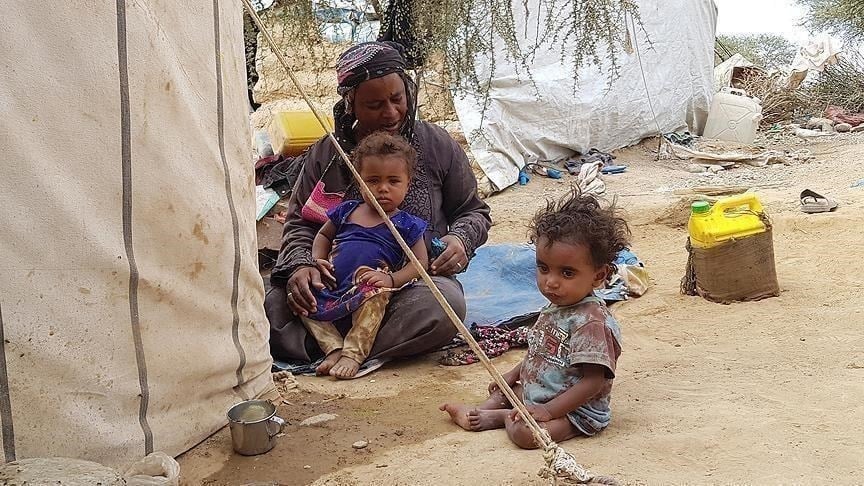Sanctions on Russia hit famine-threatened Yemen hard
As if Yemen has not had enough; a seven-year war led by the Saudi coalition, followed by a stifling siege, and now sanctions on the Arab world's biggest wheat exporters.
-

Famine-threatened Yemen fears the impact of sanctions on Russia
Northern Yemen's wheat fields stretch into the distance, but they are insufficient to feed a country where millions go hungry following seven years of war led by the Saudi coalition and a siege that has further stifled the country.
Already on the verge of famine, war-torn Yemen fears a lack of the key food item due to a different conflict – one in Ukraine, one of the world's largest exporters of the grain.
Mohammed Al-Jalal and his crew offer small loaves of bread to customers, who take them home in red plastic bags, in a busy Sanaa bakery.
"Flour is available on the market but we worry about shortages because of the sanctions imposed on Russia as a result of its military operation in Ukraine," Jalal told AFP.
Read more: UN warns of catastrophic hunger in Yemen
Most of Yemen's 30 million people will not be able to experience this locally grown grain because the country is nearly entirely dependent on food imports, with Ukraine accounting for almost one-third of the wheat supply, according to the United Nations.
People across the Middle East and North Africa are battling to obtain even the most necessities like food, and fuel costs skyrocketed as a result of Russia's February military operation in Ukraine.
Read more: Over 70% of Yemenis now below the poverty line: UN migration agency
After more than seven years of a Saudi-led war, the Arab world's poorest country was already experiencing the world's worst humanitarian disaster, according to the United Nations.
According to UN-backed assessments in March, more than 17 million Yemenis experience severe food insecurity, and the figure is certain to rise. According to UN organizations, more than 30,000 Yemenis are already suffering from famine.
Moreover, the food prices in Yemen have already doubled since last year and the country's years of raging war have led to an economic collapse.
Read more: Arabs fear for wheat supplies after Ukraine crisis
Russia's special military operation took place for several reasons, including NATO's eastward expansion. Other reasons were the Ukrainian shelling of Donbass and the killing of the people of the Donetsk People's Republic and Lugansk People's Republic, in addition to Moscow wanting to "denazify" and demilitarize Ukraine.
Following the operation, the US and its allies responded by rolling out comprehensive sanctions, including restrictions on the Russian central bank, export control measures, SWIFT cutoff for select banks, and closure of airspace to all Russian flights. Many of their companies have suspended their Russian operations.

 3 Min Read
3 Min Read








